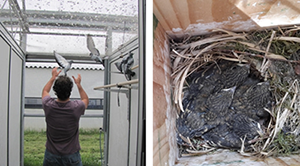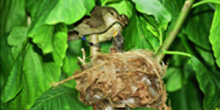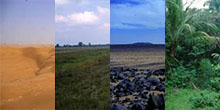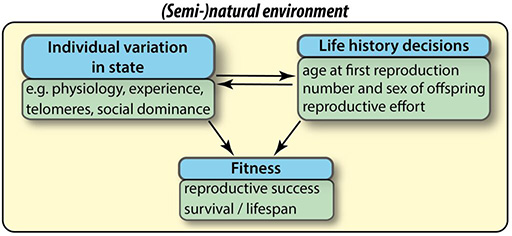Research
Please consult the web pages of the PIs below for further details.
Focal research lines
Maurine Dietz - Ecophysiology

We investigate how symbiotic microbe communities impact the ecology and life history of their hosts, with a focus on the gut microbes of birds. Current topics are the development of the gut microbiome in young birds, gut microbiome-mediated seasonal adaptations in hosts, and the microbiome-mediated functions of the preen gland.
Hannah Dugdale - Evolutionary medicine
We are interested in the evolution of within- and between-individual differences in behavioural and life-history traits. Our focus is the evolution of senescence. One of the most profound challenges we all face is that we deteriorate with age – a process known as senescence. Individuals clearly senesce differently, but our understanding of how and why individuals senesce in such different ways remains limited. Our research takes a comprehensive and integrative approach to investigate why individual variation in senescence evolved and is maintained. This will generate vital knowledge on how individuals can live longer, healthier lives.
Jan Komdeur - Behavioural ecology

Our research aim is to understand the evolution of social behaviour and the way in which this affects population dynamics. Our powerful combination of (experimental) field studies, molecular ecology, immunology, endocrinology, theoretical modelling and quantitative genetics will provide novel insights into social evolution, which can be used to inform conservation programs. We focus on natural systems for which we have comprehensive genetic parentage relationships and long-term data.
Irene Tieleman - Animal ecology

How do birds deal with their surroundings? We study how wild birds cope with challenges such as disease, heat, lack of food, or human-induced environmental changes - in the field and in the lab. Our focus is on birds from different, often extreme environments. We explore how species, populations or individuals adjust their life to predictable and unpredictable variation in environmental conditions, over time and in space. Our studies emphasize the role of physiological systems (energy, water, immune function) in ecological processes and evolutionary adaptations.
Simon Verhulst - Evolutionary biology of ageiny

We focus on the causes and consequences of individual variation in life histories and the underlying mechanisms as schematically summarized in the figure above, with an emphasis on senescence. Study organisms are birds, mostly captive zebra finches and free-living jackdaws, that we both study in the context of long-term experiments that modulate ageing and lifespan. The ‘state’ concept is central in our work, and in theory comprises every possible trait, but we concentrate on traits that are of functional importance in the sense that they predict variation in life history decisions or (components of) fitness. In this context we have focused on telomeres in birds and humans, and are now shifting attention to DNA methylation.
| Last modified: | 03 April 2025 5.07 p.m. |
